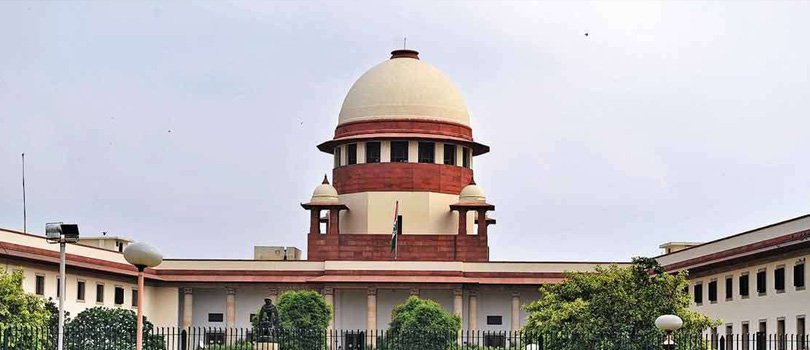
The bench of Justice A.K. Sikiri and Justice S. Abdul Nazeer of the Supreme Court of India on 15th Feb 2019 delivered the judgment in the PIL regarding non-appointment of information commissioners by the central and state governments and the lack of transparency in the appointment process which was frustrating peoples’ right to know. The petition had highlighted how the failure of the central and state governments to fill vacancies in information commissions in a time-bound manner was leading to a huge backlog of appeals & complaints and long delays in disposal of cases. It was pointed out that many commissions take several months, or even years to dispose appeals and complaints, thereby defeating the purpose of the RTI Act. Further, it was underlined that there was need for transparency in the appointment process to ensure that appropriate people are appointed as information commissioners and the process is open to public scrutiny.
The Supreme Court observed that appeals/complaints should be decided by information commissions within the shortest time possible, which should normally be within a few months. It further observed that not having the chief information commissioner or adequate number of information commissioners, may badly affect the functioning of the Act which may even amount to negating the very purpose for which this Act came into force.
Further, the judgment records that even though the RTI Act provides that commissioners should be selected from diverse backgrounds and fields of experience, mostly only bureaucrats are appointed as commissioners, especially in the case of the CIC. “However, a strange phenomenon which we observe is that all those persons who have been selected belong to only one category, namely, public service, i.e., they are the government employees. It is difficult to fathom that persons belonging to one category only are always be found to be more competent and more suitable than persons belonging to other categories. In fact, even the Search Committee which short-lists the persons consist of bureaucrats only. For these reasons, official bias in favour of its own class is writ large in the selection process.”
The judgment emphasizes that the right to information is a constitutional right- “The right to information, therefore, is not only a constitutional right of the citizens but there is now a legislation in the form of RTI Act which provides a legal regime for people to exercise their fundamental right to information and to access information from public authorities. The very preamble of the Act captures the importance of this democratic right…”. “On proper implementation, it has the potential to bring about good governance which is an integral part of any vibrant democracy. Attaining good governance is also one of the visions of the Constitution. It also has vital connection with the development.”
The key directions of the judgment are given below:
– State governments should fill existing vacancies in a time-bound manner within 6 months and where there are huge backlogs of appeals/complaints, the commission should function at full strength i.e. 1 chief and 10 information commissioners
– Central and state governments should ensure that vacancies are filled without any delay. The process for filling up of a particular vacancy should be initiated 1 to 2 months before the date on which the vacancy is likely to occur so that there is not much time lag between the occurrence of vacancy and filling up of the said vacancy.
-Commissioners should be appointed from diverse backgrounds as provided in the RTI Act and selection should not only be limited to current or former bureaucrats. In the case of the CIC, the court has impressed upon the Search Committee, to ensure that it picks up suitable candidates from other categories as well in the future.
To ensure transparency in appointments, the SC has directed that all necessary information including the advertisement, particulars of the applicants, composition of Selection Committee and search committee, minutes of meetings of search/selection committee etc. should be put up on the website.
-The criteria adopted for shortlisting candidates by the search committee should be made public, to ensure that shortlisting is done on the basis of objective and rational criteria.
The terms and conditions of appointment of information commissioners (salaries, tenure, etc.), which are defined in the RTI Act, should be specified in the advertisement and put on website as well.
Read the petition here.
Read the Judgement here.
Media Reports:
Supreme
Court tells Centre, states to fill vacancies in information commissions,
Economic Times
Selection
of information commissioners shouldn’t be limited to bureaucrats: SC,
Counterview
“Not Just Bureaucrats”: Top Court On Appointments To Information Panel, NDTV
Bureaucrats only cannot be made information commissioners, says Supreme Court, The Print
Fill up info commissions posts: SC, Deccan Herald
Don’t pick just babus for info commissions: Court, Times of India
Not only babus but people from other fields be also appointed as Information Commissioners: SC, Times of India
SC directs centre to initiate process to appoint Information Commissioners, APN News
Central Information Commissioner to Have Same Status as CEC, Babus Not Only Ones Fit For Post: SC, News18
SC passes directions calling for transparency for appointment of CIC, ICs, Live Mint
Look beyond bureaucrats for CIC, State Information Commissioners appointments: SC, The Hindu
SC says CIC SICs should have eminent people from all fields not just bureaucracy, The Week
SC directs Centre to appoint Information Commissioners ‘from all streams’, Business Standard
Fill SIC posts in six months, don’t hire just govt officers: Apex court, DNA
Supreme Court asks Centre, state govts to fill up vacancies of information commissioners, The Hindustan Times
Non-bureaucrats for info top posts too: SC, The Tribune
